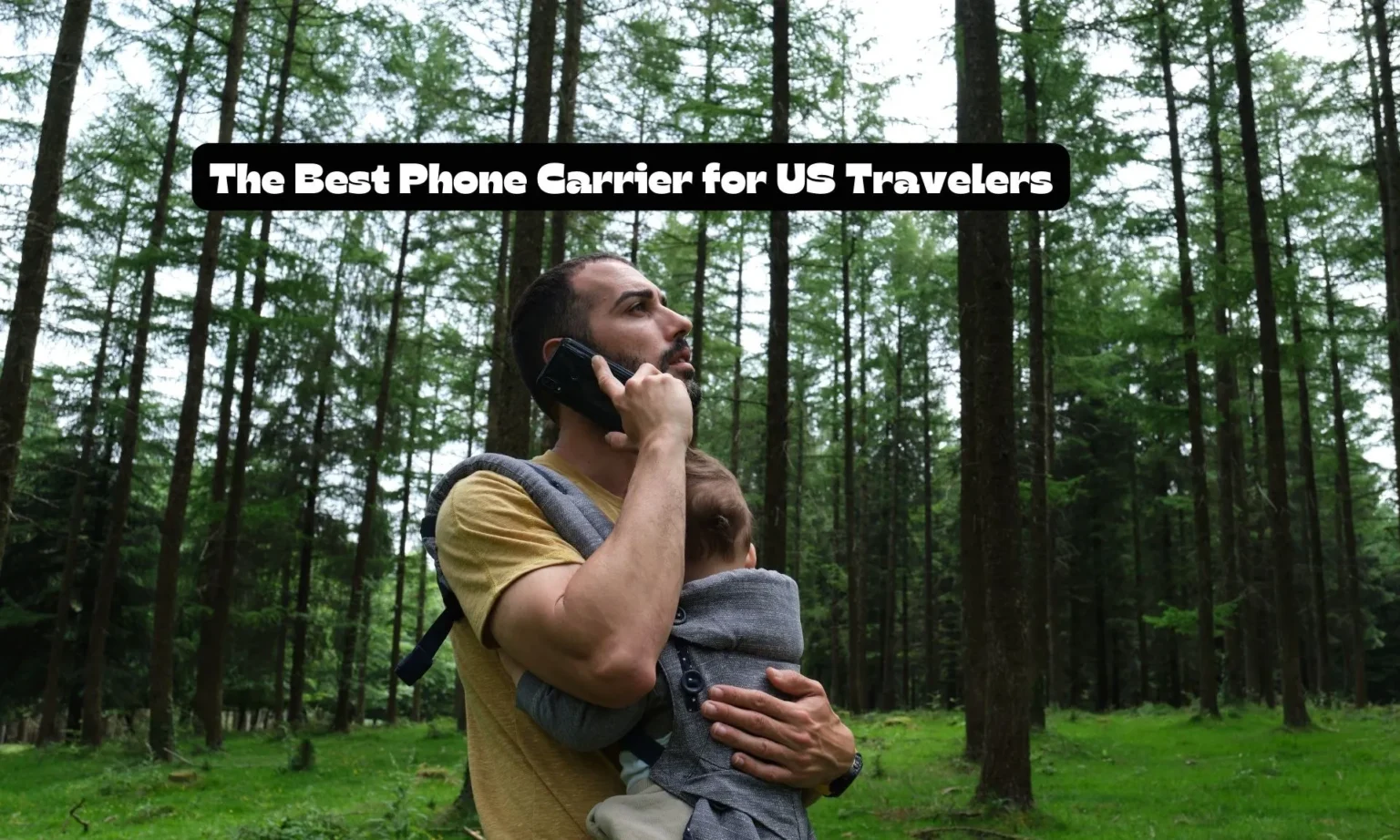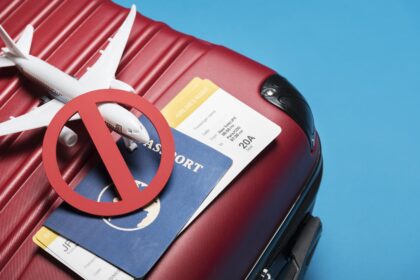Introduction
In an era defined by perpetual connectivity, finding the best phone carrier for US travelers has become a critical aspect of planning any trip. As voyagers embark on journeys that traverse the vast landscapes of the United States, the need for reliable, robust, and cost-effective mobile service has become non-negotiable. The advent of new technologies, coupled with the competitive landscape of the telecommunications industry, has ushered in a new wave of possibilities, making the selection process of the ideal phone carrier a nuanced and crucial decision.
Navigating the Tides of Connectivity
Amid the myriad of options available to US travelers, discerning the optimal phone carrier involves a comprehensive evaluation of various factors, ranging from network coverage and data speeds to customer service and pricing plans. While several carriers boast extensive coverage maps and lightning-fast data speeds, the true litmus test lies in their ability to deliver seamless connectivity in the diverse and often challenging terrains that the US has to offer.
The Best Phone Carrier for US Travelers
Traveling within the United States can be a headache when it comes to cell phone service. With different carriers having better or worse coverage in certain areas, it’s hard to know which one will give you the most reliable service. However, by analyzing coverage maps and customer reviews, a clear winner emerges for US travelers: Verizon Wireless.
Verizon: The Reliability Pioneer
One of the frontrunners in the quest for reliable connectivity, Verizon has garnered a stellar reputation for its extensive coverage and consistent performance across the US. With a robust network infrastructure that spans rural expanses and urban hubs alike, Verizon has positioned itself as a reliable ally for travelers seeking unwavering connectivity during their sojourns. Despite premium pricing, the carrier’s commitment to quality service has established it as a go-to choice for travelers prioritizing uninterrupted communication.
Verizon boasts the most widespread cellular and data coverage across the country, especially in rural areas where other major carriers have little to no service. Their 4G LTE network reaches over 2.4 million square miles, ensuring you can connect in most parts of the US. Verizon also gives you access to over 500,000 WiFi hotspots nationwide through their network, allowing you to conserve your data when roaming.
For international travelers, Verizon offers competitive travel pass options and Support for over 200 countries. Their TravelPass grants you unlimited talk, text and data for $10/day in popular destinations like Europe, Mexico, and Canada. Verizon also provides rental smartphones specifically for international travel.
In addition to their unbeatable domestic and international coverage, Verizon consistently ranks highest in network quality and customer satisfaction. Independent testing from firms like RootMetrics and JD Power back up Verizon’s reputation for reliability and speed. And with their wide selection of plans, you can customize your data amounts and features to control costs.
If you want to use your own phone while traveling abroad, Verizon’s support for eSIM makes it easy to activate temporary data plans as needed. And Verizon gives you unlimited talk, text and data throughout Mexico and Canada on most of their new plans.
With outstanding coverage across the US and globe, excellent network quality, and competitive travel options, Verizon is the clear choice for travelers who need a reliable phone connection anywhere. Their widespread 4G LTE network keeps you connected on the road or in the skies, whether you’re in rural America or a foreign country. For seamless service across state and country borders, Verizon has you covered.
READ ALSO: USA Family Travel Guide: Everything You Need To Know Before Visiting With Kids
AT&T: Blazing Trails in Innovation
Recognized for its innovative strides in the telecommunications landscape, AT&T has emerged as a formidable contender for US travelers seeking a blend of cutting-edge technology and nationwide coverage. Leveraging its advanced network infrastructure, AT&T offers a diverse range of plans tailored to accommodate the varying needs of travelers, whether for business or leisure. Despite occasional regional disparities in coverage, AT&T’s persistent focus on technological advancements continues to position it as a viable option for travelers looking for a balance between reliability and innovation.
T-Mobile: Pioneering Affordability and Flexibility
Known for its competitive pricing plans and flexible offerings, T-Mobile has carved a niche for itself in the market, particularly among budget-conscious travelers. With a growing network footprint and a penchant for customer-centric service, T-Mobile has steadily expanded its reach, providing travelers with cost-effective options without compromising on the quality of service. While its coverage in remote regions might be comparatively limited, T-Mobile’s commitment to affordability and customer satisfaction has garnered a loyal following among budget travelers and digital nomads.
The Evolving Landscape: 5G and Beyond
In the ever-evolving landscape of telecommunications, the advent of 5G technology has catalyzed a transformative shift, promising unprecedented speeds and connectivity that transcend the boundaries of conventional mobile networks. With the deployment of 5G infrastructure across various regions in the United States, the implications for US travelers are manifold, heralding a new era of immersive experiences, enhanced productivity, and seamless communication on the go.
Verizon’s 5G Ultra Wideband, characterized by its remarkable speeds and low latency, has paved the way for immersive augmented reality (AR) experiences and real-time data-intensive applications, revolutionizing the way travelers engage with their surroundings. AT&T’s nationwide 5G coverage, complemented by its emphasis on IoT (Internet of Things) integration, has unlocked a realm of possibilities for travelers, enabling them to leverage interconnected devices and services for a more streamlined and efficient travel experience.
Simultaneously, T-Mobile’s expansion of its 5G network footprint has fostered an environment conducive to digital innovation and connectivity, empowering travelers to harness the full potential of high-speed internet for seamless navigation, communication, and content consumption during their journeys. As the race to expand 5G infrastructure gains momentum, the convergence of speed, reliability, and expansive coverage is poised to redefine the landscape of US travel, transcending traditional boundaries and reshaping the way travelers perceive and interact with their surroundings.
Looking Ahead: The Future of Connectivity
Beyond the realms of 5G, the future of connectivity for US travelers holds promise for an interconnected ecosystem characterized by enhanced user experiences, personalized services, and a holistic integration of technology within the fabric of travel. With the proliferation of IoT-enabled devices, travelers can anticipate a seamless convergence of services that cater to their specific needs, ranging from smart navigation and augmented reality guidance to personalized travel recommendations and real-time language translation.
Moreover, the amalgamation of telecommunications with emerging technologies such as artificial intelligence (AI) and machine learning is poised to redefine the landscape of customer service, offering travelers an intuitive and personalized support system that anticipates their needs and preferences. The integration of AI-driven virtual assistants within the realm of telecommunications is set to streamline communication, enhance accessibility, and empower travelers with an unprecedented level of convenience and efficiency, transforming the way they navigate, communicate, and experience the world around them.
In the pursuit of unparalleled connectivity and seamless communication, the onus lies on the telecommunications industry to continue pioneering innovative solutions that not only cater to the evolving needs of travelers but also foster a sense of interconnectedness that transcends geographical boundaries and cultural disparities. As the realm of travel continues to expand, the symbiotic relationship between telecommunications and travel is poised to redefine the contours of exploration, fostering a world where connectivity serves as the cornerstone of a truly enriching and immersive travel experience.
Key Things to Know Before Choosing a Phone Carrier for US Travel
Coverage Maps and Network Reliability: Prioritize carriers with extensive coverage maps, especially if your travel plans include remote or rural areas. Ensure the carrier’s network reliability aligns with your travel destinations to avoid connectivity issues.
Data Speeds and Performance: Evaluate the data speeds offered by carriers, especially if you rely on seamless internet connectivity for work or leisure. Consider carriers known for consistent and fast data speeds, ensuring smooth navigation, streaming, and communication during your travels.
Pricing Plans and Flexibility: Compare pricing plans offered by different carriers, considering your budget and data usage requirements. Look for carriers offering flexible plans that can accommodate your travel duration and data consumption without incurring excessive costs.
Customer Service and Support: Research the quality of customer service provided by carriers, as prompt and efficient support can be crucial during emergencies or technical issues while traveling. Choose carriers known for responsive and helpful customer service to ensure a seamless experience throughout your journey.
Technology Advancements and Future Readiness: Consider carriers that invest in advanced technologies like 5G and IoT, ensuring future-proof connectivity for upcoming travel trends. Assess carriers’ commitment to technological innovation and their plans for integrating emerging technologies into their services.
By keeping these key considerations in mind, you can make an informed decision when choosing the best phone carrier for your US travels, ensuring uninterrupted connectivity and a smooth communication experience throughout your journey.
READ ALSO: 10 Best Travel Insurance Companies
Frequently Asked Questions (FAQs) When Choosing a Phone Carrier for US Travel:
Which phone carrier has the best coverage in rural areas?
Consider carriers like Verizon and AT&T known for their extensive rural coverage, ensuring connectivity even in remote and less populated areas.
Are there any affordable phone carriers with reliable nationwide coverage?
T-Mobile offers competitive pricing plans with a growing nationwide coverage footprint, making it a popular choice for budget-conscious travelers seeking reliable connectivity.
What should I do if I encounter connectivity issues during my travels?
Contact your carrier’s customer service immediately to troubleshoot the issue. Most carriers offer 24/7 customer support to assist you in resolving any connectivity-related concerns promptly.
How do I know if my phone is compatible with a specific carrier’s network?
Check your phone’s compatibility with the carrier’s network by visiting their website or contacting their customer service. They can provide guidance on whether your device is compatible with their network infrastructure.
Are there any special international roaming plans available for frequent travelers?
Some carriers offer specialized international roaming plans that cater to frequent travelers, providing cost-effective options for maintaining connectivity abroad. Inquire about these plans before embarking on your travels to ensure seamless connectivity while abroad.
What are the data speed limitations in certain regions, and how can I manage my data usage effectively?
Understand the data speed limitations in specific regions by reviewing carrier-specific data speed information. Utilize data management tools provided by carriers to monitor and control your data usage, ensuring efficient utilization of data while traveling.
Can I switch carriers while traveling, and what are the implications?
Switching carriers during travel is possible but may lead to temporary disruptions in connectivity. Consider the potential impact on your communication needs and travel plans before deciding to switch carriers while on the go.
By familiarizing yourself with these frequently asked questions, you can navigate the process of selecting a phone carrier for your US travels more confidently, ensuring a seamless and uninterrupted communication experience throughout your journey.
Conclusion
In the dynamic landscape of US travel, the selection of an optimal phone carrier stands as a pivotal decision that directly influences the quality of communication and connectivity experienced during journeys. With an array of carriers offering diverse coverage, pricing plans, and technological capabilities, travelers must prioritize a comprehensive evaluation of their individual needs and preferences when making this crucial choice.
Considering factors such as network coverage, data speeds, pricing plans, customer service, and technological advancements, travelers can make an informed decision that aligns with their specific travel requirements and ensures a seamless and enriching communication experience. Whether prioritizing reliability in remote areas, affordability for extended travels, or cutting-edge technology for future-readiness, the best phone carrier for US travelers remains contingent on a careful balance of these essential considerations.
By staying informed about the latest advancements in telecommunications, remaining vigilant about the nuances of coverage and connectivity, and leveraging the insights provided in this guide, travelers can embark on their journeys with the confidence that their chosen phone carrier will serve as a reliable and steadfast companion throughout their travels, enabling them to stay connected, informed, and inspired as they explore the diverse tapestry of the United States.
In another related article, Where is the cheapest place to live in New York?






